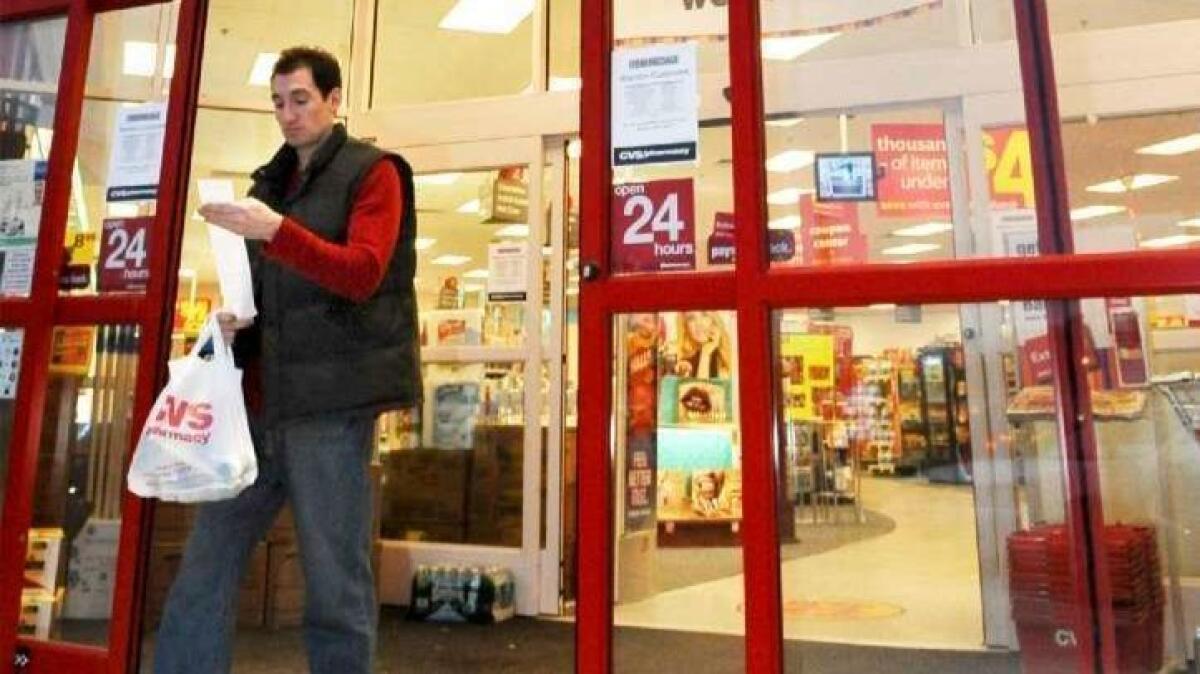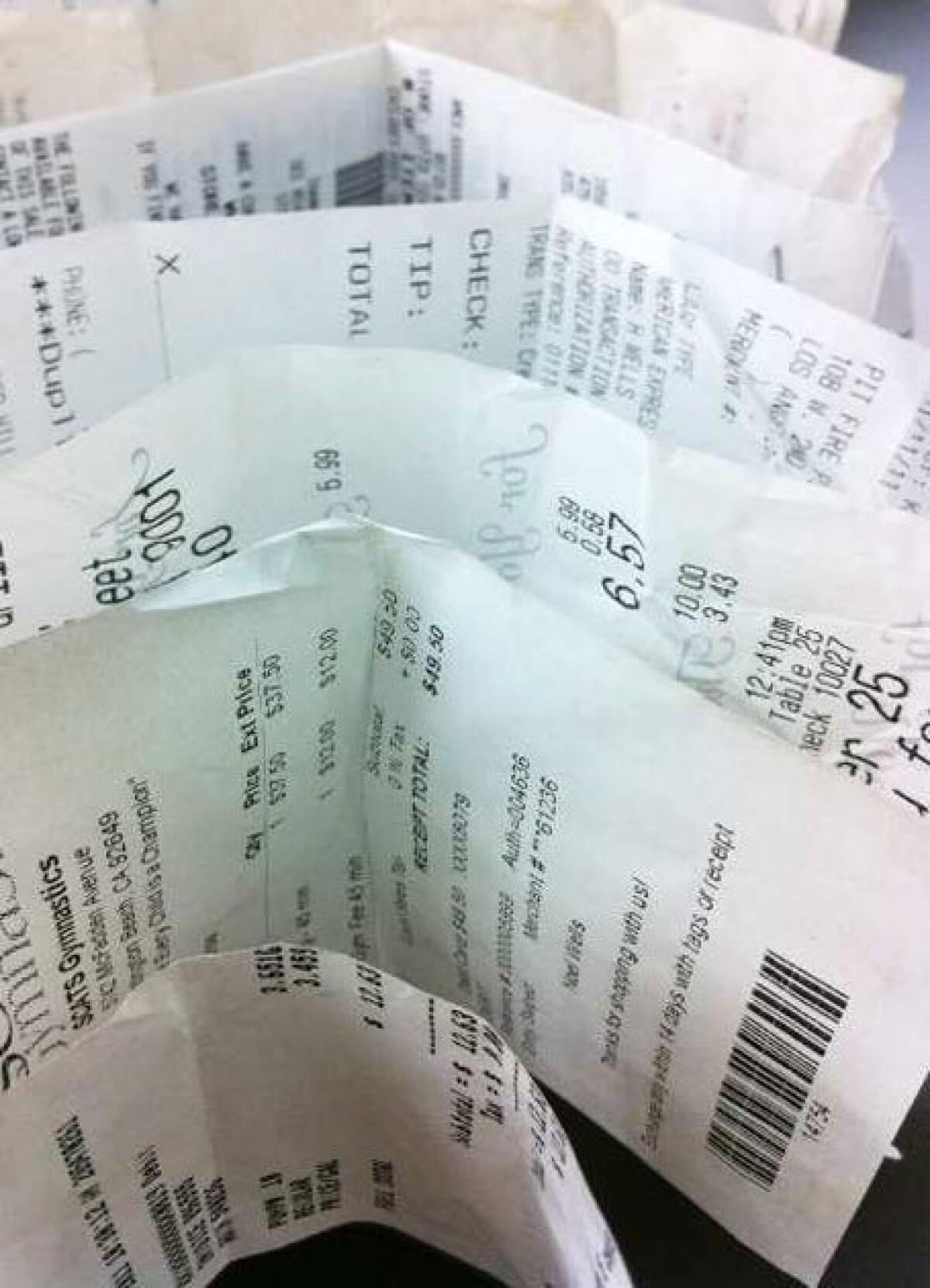Long paper receipts can stay for now, as California lawmakers reject ban

SACRAMENTO — Props, costumes and a Jimmy Kimmel joke weren’t enough to prevent the California Senate from trashing a bill Friday that would have restricted retailers from routinely handing out unwanted and unusually long receipts.
Assembly Bill 161 by Assemblyman Phil Ting (D-San Francisco) would have required stores to ask consumers if they wanted receipts before printing them in an effort to reduce paper waste in the state. The bill had been significantly scaled back in recent months after criticism from the paper industry and business groups. Finally, it stalled in the Senate Appropriations Committee.
“We are very disappointed,” Ting said, adding that he will probably try again next year. “We think this bill made a lot of sense and had clear environmental impacts.”
The bill initially would have required businesses by 2022 to provide customers electronic receipts unless a paper printout was requested. Provisions calling for digital receipts prompted privacy concerns and were ultimately dropped.
The version of the bill that was sidelined Friday would have required businesses to ask customers before printing a receipt, and then required that those not include coupons or advertisements unless also requested. AB 161 also sought to ban certain chemicals from being used on the paper receipts.

The use of chemicals on paper receipts makes them undesirable to recyclers, according to the Department of Resources Recycling and Recovery, or CalRecycle. The American Forest and Paper Assn., an industry group that opposed the bill, estimated that 180,000 tons of paper receipts a year are generated nationwide. That is a small percentage of total paper waste, the group argued.
“Public policy should be based on facts and sound science, not misinformation and unsubstantiated claims,” said Jessica Mause of the opposition group Keep the Receipt, which was funded by the American Forest and Paper Assn. “We’re pleased that legislators recognized paper receipts are not only preferred by the majority of consumers, but are also safe for consumers and employees.”
The Department of Justice estimated it would cost $717,000 a year for the added staff to enforce AB 161, which carried financial penalties for businesses that did not comply.
Consumers have taken to social media in recent years to express frustration with excessively long receipts that they photograph as props. Ting turned to a campy ploy to draw attention to the bill, having a legislative staff member wear a costume that looked like an oversize receipt, naming him Skip the Slip.
CVS Health, a national pharmacy chain, has been a frequent target for criticism for printing coupon-filled receipts taller than consumers. Or, as Kimmel pointed out in his most recent dig at CVS: “I believe a receipt for a pack of gum should not be tall enough to ride Space Mountain.”
More to Read
Sign up for Essential California
The most important California stories and recommendations in your inbox every morning.
You may occasionally receive promotional content from the Los Angeles Times.











